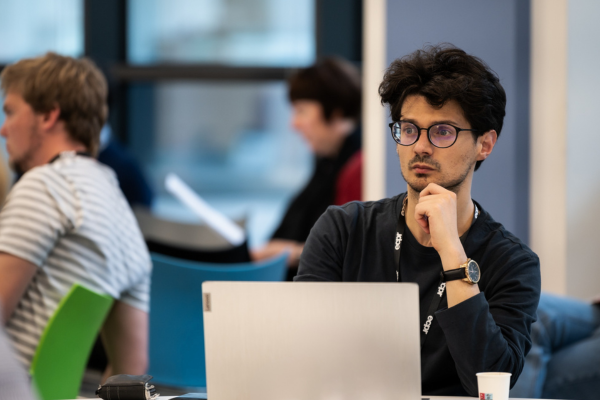
Thessaloniki, Greece
Introduction to Social Network Analysis
When:
26 August - 29 August 2025
Credits:
4 EC
Read more
Social Sciences & Computer Sciences Summer Course
When:
05 July - 20 July 2025
School:
Institution:
Vrije Universiteit Amsterdam
City:
Country:
Language:
English
Credits:
0 EC
Fee:
1140 EUR

Human processes of all kinds are complex and adaptive. Mental, social, and health-related processes can all change and adapt over time with human behaviour. Thought-based processes can change as a result of learning, social interactions can evolve over time, and health-related processes are susceptible to change too.
This course will present theories and findings from a wide range of disciplines, including various branches of cognitive, social, health and neuroscience, to gain insight into underlying mechanisms of human processes that can be exploited in human AI modeling and simulation. The various scientific theories form a factual basis for modelling the processes. We can understand these often adaptive mechanisms through causal relations and causal pathways, which we can model as networks. Using this theoretical framework and the software provided, students can easily simulate a variety of scenarios.
During the second week, students will carry out activities that could lay the foundations for a publication that can be finished later on in the course. This course introduces a network-oriented modelling approach based on adaptive networks. This approach is useful for modelling social interactions and mental and health-related processes within their respective networks.
These network models cover the dynamics of causal effects, changing causal connections and excitability or sensitivity thresholds. Higher-order adaptiveness is another topic covered in the course, which includes the role of metaplasticity and the extent to which plasticity occurs in the field of cognitive neuroscience.
Assessment is based on the assignments. In the second week of the course, a final assignment is addressed, which might be worked out to a paper that may be submitted to an international conference, where it could be presented and provided a publication. For this, support is provided also after the course.
Jan Treur
Students or professionals interested to learn more on modeling and computer simulation of mental, social and health-related processes. This may concern Ph.D., Master or Bachelor students or any other types of interested students from any discipline. No programming nor modeling experience is needed.
By the end of the course, students will be able to:
Identify different types of mental, social and health-related processes;
Understand how individual and social behaviour emerges from mechanisms known from Cognitive, Affective and Social Neuroscience, and from Cognitive and Social Sciences, and Health Sciences;
Design network models for adaptive mental, social and health-related processes;
Perform simulations based on these models using the provided Network-Oriented Modeling software environment.
Fee
1140 EUR, Students
Students, PhD candidates and employees of VU Amsterdam, Amsterdam UMC or an Aurora Network Partner €765 Students and PhD candidates at partner universities of VU Amsterdam €1035 Students and PhD candidates at non-partner universities of VU Amsterdam €1140 Professionals €1360
When:
05 July - 20 July 2025
School:
Institution:
Vrije Universiteit Amsterdam
Language:
English
Credits:
0 EC

Thessaloniki, Greece
When:
26 August - 29 August 2025
Credits:
4 EC
Read more

Thessaloniki, Greece
When:
26 August - 29 August 2025
Credits:
4 EC
Read more

Lugano, Switzerland
When:
11 August - 15 August 2025
Credits:
0 EC
Read more